Showing all 29 results
CardioVillage provides Continuing Education credit with fully accredited content developed by board-certified Internal Medicine physicians. Physicians, Nurses, Advanced Practitioners, Echocardiographers and other healthcare providers will all benefit from our mobile-friendly, relevant, and engaging learning content.
You can use the Search field or Category Filters at left to find the courses most relevant to your needs and register to get started today.
Disclosures note: See individual course for author disclosures. Project Team disclosures are found here.
-
 NEW!!
NEW!!A Case of Arrhythmogenic Right Ventricular Cardiomyopathy (ARVC)
Description: This course follows a patient diagnosed with Arrhythmogenic Right Ventricular Cardiomyopathy (ARVC), and highlights the background, pathophysiology, clinical manifestions, diagnosis, risk stratification, and management of ARVC. The course is developed from a Cath Lab patient case presentation and includes audio files of discussion about the case between meeting attendees.
Authors: Nicholas Ashur, MD
Credit/contact hours: .25
Estimated time to complete: 20 Minutes
Publication Date: August 18, 2023
Expiration Date: August 18,, 2026
$25.00 -
 NEW!!
NEW!!A Case of Constrictive Pericarditis
Description: This patient case-based course focuses on constrictive pericarditis diagnosis, hemodynamics, and some of the differences between it and other diseases. The course is developed from a Cath Lab patient case presentation and includes audio files of discussion about the case between meeting attendees.
Authors: Patrick Stafford, MD
Credit/contact hours: .25
Estimated time to complete: 20 Minutes
Publication Date: August 18, 2023
Expiration Date: August 18,, 2026
$25.00 -

Advanced Coronary Angiography
Description: Coronary angiography is probably the most critical aspect of cardiac catheterization and is required in multiple clinical settings. Patients may present with stable chest pain syndromes, acute coronary syndromes, or life-threatening myocardial infarction, with other cardiac abnormalities such as valvular heart disease, or with other non-cardiac conditions requiring knowledge of coronary anatomy for safe management.
Authors: Michael Ragosta III, MD
Credit/contact hours: .75
Estimated time to complete: 45 minutes
Publication Date: March 8, 2018
Expiration Date: March 7, 2027
$25.00 -
 NEW!!
NEW!!Cardioversions and Anticoagulation Protocols
Description: This course provides an excellent background review of the issues related to cardioversion and anticoagulation in the acute setting. It is important to distinguish these acute issues from the role of anticoagulation in patients with chronic atrial fibrillation over the longer term.
Authors: Author: Ashley Viars, AG-ACNP
Credit/contact hours: .5
Estimated time to complete: 30 Minutes
Publication Date: August 18, 2023
Expiration Date: August 18,, 2026
$25.00 -
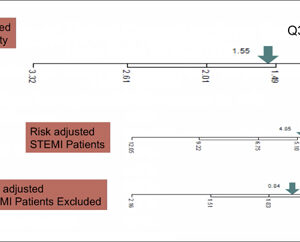
Complications of Percutaneous Coronary Intervention – PCI
Description: Percutaneous coronary interventions are life-saving methods for many patients presenting with coronary or cardiac disease. Meticulous technique and attention to detail are of utmost importance. Many patients present with complex anatomy, difficult clinical scenarios, or challenging problems. In this lecture, Dr. Ragosta describes the risk factors, complications, and therapeutic responses that can occur during PCI.
Authors: Michael Ragosta III, MD
Credit/contact hours: 1
Estimated time to complete: 60 minutes
Publication Date: March 8, 2018
Expiration Date: March 7, 2027
$25.00 -
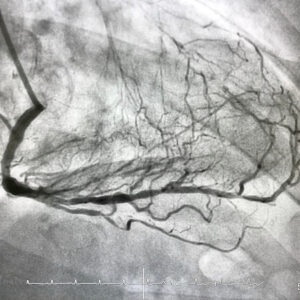
Coronary Collaterals
Description: In this course, we will discuss the clinical significance of coronary collaterals as they relate to patients with coronary heart disease.
Authors: Michael Ragosta III, MD
Credit/contact hours: .25
Estimated time to complete: 20 Minutes
Publication Date: February 15, 2022
Expiration Date: February 15, 2028
$25.00 -

Women and Heart Disease
Description: In this course, we explore our clinically relevant knowledge of heart disease in women and describe the current thinking regarding the history, appropriate diagnostic testing, and the treatment of coronary disease in women. Note: This course is eligible for ACPE credit.
Authors: Darla Topley, DNP, AGACNP, CNS
Credit/contact hours: .5
Estimated time to complete: 35 Minutes
Publication Date: February 15, 2022
Expiration Date: February 15, 2028
$25.00 -
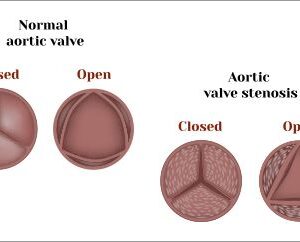
Aortic Stenosis
Description: This lecture covers the large and complex topic of aortic stenosis. In this lecture, Dr. Ragosta discusses the natural history of the disease, typical clinical and hemodynamic findings, and cath lab management of patients with aortic stenosis. Note: This course is eligible for ACPE credit.
Authors: Michael Ragosta III, MD
Credit/contact hours: .75
Estimated time to complete: 40 minutes
Publication Date: March 8, 2018
Expiration Date: March 7, 2027
$25.00 -
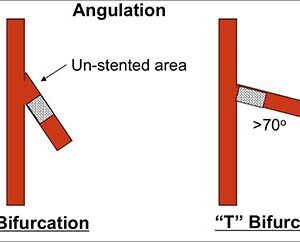
Aorto-Ostial and Bifurcation Lesions
Description: Percutaneous coronary intervention involves a wide range of complexity, from relatively straightforward Type A lesions in a C-shaped right coronary artery to much more complex anatomy. Ostial lesions and bifurcation lesions remain subsets that continue to challenge current interventional strategies and that can have increased risks of subacute closure and/or restenosis. Note: This course is eligible for ACPE credit.
Authors: Michael Ragosta III, MD
Credit/contact hours: .75
Estimated time to complete: 40 minutes
Publication Date: March 8, 2018
Expiration Date: March 7, 2027
$25.00 -
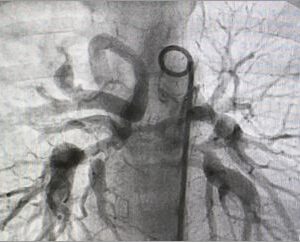
Aortography and Ventriculography
Description: Aortography and ventriculography are more specialized imaging techniques used in the cardiac catheterization laboratory for specific diagnoses and for specific indications. Ventriculography is an important diagnostic imaging modality to assess left ventricular function, regional wall motion abnormalities, severity of mitral regurgitation, certain congenital and shunt conditions such as ventricular septal defect.
Authors: Michael Ragosta III, MD
Credit/contact hours: .75
Estimated time to complete: 40 minutes
Publication Date: March 8, 2018
Expiration Date: March 7, 2027
$25.00 -
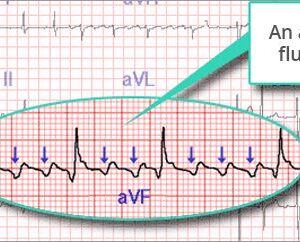
Atrial Flutter Top 10
Description: Atrial flutter is now known to be a "macro-reentrant" atrial tachycardia occurring in a counter-clockwise direction within the right atrium. The atrial rate is typically between 250 and 350 beats per minute. In general, the AV node conducts every other beat resulting in ventricular rates which are 50% of the atrial rate. Note: This course is eligible for ACPE credit.
Authors: Andrew E Darby, MD
Credit/contact hours: .5
Estimated time to complete: 30 minutes
Publication Date: March 8, 2018
Expiration Date: March 7, 2027
$25.00 -
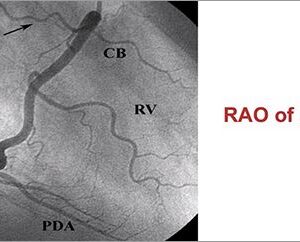
Coronary Angiography
Description: The cardiac catheterization laboratory has changed dramatically over the years as the focused has expanded from hemodynamic evaluation to include an extraordinary range of imaging modalities and rapidly increasing opportunities for therapeutic intervention. Note: This course is eligible for ACPE credit.
Authors: Michael Ragosta III, MD
Credit/contact hours: 1.0
Estimated time to complete: 60 minutes
Publication Date: March 8, 2018
Expiration Date: March 7, 2027
$25.00 -
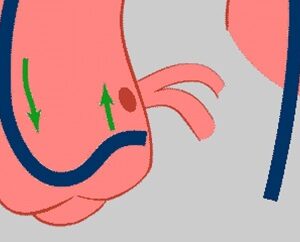
Coronary Angiography Principles and Catheters
Description: Coronary angiography is the definitive “gold standard” clinical technique for evaluating coronary anatomy in many patients. It provides accurate information regarding the location and severity of coronary disease, anomalies, and correlation with clinical syndromes.
Authors: Michael Ragosta III, MD
Credit/contact hours: 0.5
Estimated time to complete: 30 minutes
Publication Date: February 6, 2019
Expiration Date: February 6, 2028
$25.00 -
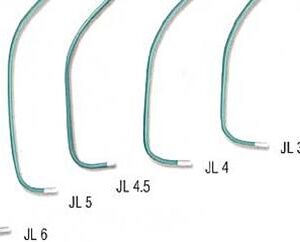
Coronary Angiography: A Primer
Description: In this lesson, we will use three dimensional presentations of coronary anatomy to learn the most commonly used views for coronary angiography, ventriculography, and aortography.
Authors: Lawrence W Gimple, MD
Credit/contact hours: .5
Estimated time to complete: 30 minutes
Publication Date: February 6, 2019
Expiration Date: February 6, 2028
$25.00 -
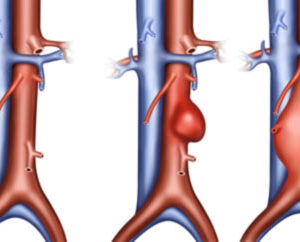
Difficult STEMI
Description: Not all STEMI cases are straightforward and interventional complexities are common, require experienced operators, and interventions are often nuanced and challenging. Note: This course is eligible for ACPE credit.
Authors: Alan Johnson, MD and Lawrence W. Gimple, MD
Credit/contact hours: .5
Estimated time to complete: 30 minutes
Publication Date: March 8, 2018
Expiration Date: March 7, 2027
$25.00 -
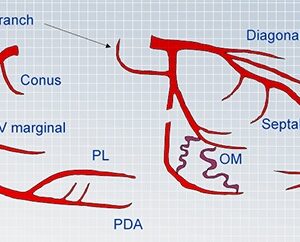
Fractional Flow Reserve Measurement
Description: In this lesson, we will describe the technique of FFR and discuss the interpretation of results in a clinical context. Note: This course is eligible for ACPE credit.
Authors: Michael Ragosta III, MD
Credit/contact hours: .25
Estimated time to complete: 20 minutes
Publication Date: March 14, 2019
Expiration Date: March 14, 2028
$25.00 -
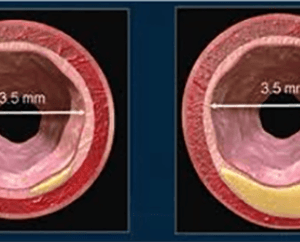
Introduction and Basics of Image Interpretation
Description: Myocardial nuclear imaging provides valuable anatomic and prognostic information with respect to coronary heart disease. There are, however, important limitations to this imaging. To understand the proper clinical interpretation of perfusion imaging scans it is important understand the basic principles of coronary blood flow, atherosclerosis, and the principles underlying nuclear perfusion imaging.
Authors: Jamieson M. Bourque, MD
Credit/contact hours: 0.5
Estimated time to complete: 30 minutes
Publication Date: December 6, 2018
Expiration Date: December 6, 2027
$25.00 -

Learn Cardiology from the ECG!
Description: Many medical students find studying the ECG to be a tedious and daunting task. This should not be the case. Note: This course is eligible for ACPE credit.
Authors: Dr. Lawrence W. Gimple
Credit/contact hours: .5
Estimated time to complete: 50 minutes
Publication Date: March 8, 2018
Expiration Date: March 7, 2027
$25.00 -
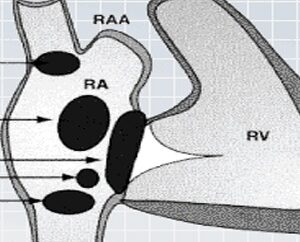
Left to Right Shunts: Atrial Septal Defects (ASD)
Description: Atrial septal defects (ASD) are among the more commonly diagnosed congenital defects and can present at any age from infancy to late in life. Significant advances in imaging, interventional cardiology, and cardiac surgery allow for an array of potential therapies depending on the location of the defect. Note: This course is eligible for ACPE credit.
Authors: Michael Ragosta III, MD and Andrew Bishop, MD FACC
Credit/contact hours: .75
Estimated time to complete: 45 minutes
Publication Date: May 10, 2018
Expiration Date: May 9, 2027
$25.00 -

Measurement Methods of Hemodynamics
Description: The cardiac catheterization laboratory is the traditional venue for measuring and defining a patient’s hemodynamics. In this course, we will describe the methods and pitfalls of hemodynamic assessment. Note: This course is eligible for ACPE credit.
Authors: Michael Ragosta III, MD and Lawrence W Gimple, MD
Credit/contact hours: .25
Estimated time to complete: 10 minutes
Publication Date: March 8, 2018
Expiration Date: March 7, 2027
$25.00 -

Mitral Stenosis: Basics
Description: In this exercise, we review the causes of mitral stenosis and focus on the clinical presentation, physical exam, and natural history. Conditions associated with mitral stenosis are discussed. Note: This course is eligible for ACPE credit.
Authors: Michael Ragosta III, MD
Credit/contact hours: .5
Estimated time to complete: 30 minutes
Publication Date: Apr 21, 2020
Expiration Date: Apr 21, 2026
$25.00 -

Mitral Stenosis: Hemodynamic Tracing Interpretation
Description: This lesson focuses on the hemodynamic measurements made in the cardiac catheterization laboratory in the evaluation of mitral stenosis. Measurement of simultaneous left atrial and left ventricular pressures during diastole is the most accurate method to hemodynamically assess the mitral valve gradient.
Authors: Michael Ragosta III, MD
Credit/contact hours: .5
Estimated time to complete: 30 minutes
Publication Date: Apr 21, 2020
Expiration Date: Apr 21, 2026
$25.00 -
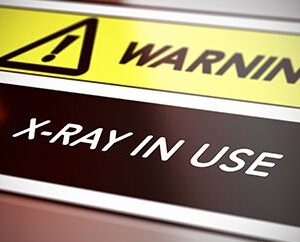
Radiation Safety
Description: The risks of cath lab radiation exposure and how to reduce them.
Authors: Dr. Michael Ragosta III
Credit/contact hours: .5
Estimated time to complete: 40 minutes
Publication Date: March 8, 2018
Expiration Date: March 7, 2027
$25.00 -

Subvalvular and Subvalvular Obstruction
Description: Conditions other than hypertrophic cardiomyopathy or valvular aortic stenosis may be associated with obstruction and gradients involving the left ventricle and aorta. Note: This course is eligible for ACPE credit.
Authors: Michael Ragosta III, MD
Credit/contact hours: .25
Estimated time to complete: 15 minutes
Publication Date: Apr 21, 2020
Expiration Date: Apr 21, 2026
$25.00 -
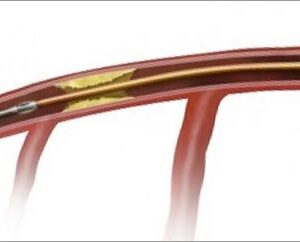
The Role of Fractional Flow Reserve
Description: This case analysis regards a patient with multivessel coronary heart disease who undergoes coronary angiography. Coronary artery bypass surgery is recommended. The patient undergoes additional evaluation with Fractional Flow Reserve (FFR) to define the hemodynamic significance of several of the coronary stenoses. Note: This course is eligible for ACPE credit.
Authors: Adrian Loffler, MD
Credit/contact hours: 1.0
Estimated time to complete: 60 minutes
Publication Date: March 8, 2018
Expiration Date: March 7, 2027
$25.00 -
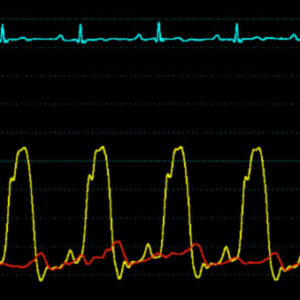
Waveform Interpretation: Left Atrial, Aortic, Peripheral Arteries, Left Ventricular
Description: Recording hemodynamic pressures from the left atrium can be straightforward in the presence of certain abnormalities such as atrial septal defect or patent foramen ovale, but will require trans-septal puncture in many patients. Note: This course is eligible for ACPE credit.
Authors: Michael Ragosta III, MD and Lawrence W Gimple, MD
Credit/contact hours: .25
Estimated time to complete: 20 minutes
Publication Date: March 8, 2018
Expiration Date: March 7, 2027
$25.00 -
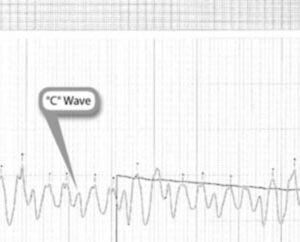
Waveform Interpretation: Right Atrial, Right Ventricular, Pulmonary Artery
Description: Many cardiac and critical care patients undergo right-heart catheterization to measure pressures and oxygen saturations in the right-sided cardiac chambers. In addition to the absolute value of these measurements, there is significant information about cardiac physiology and pathology that can be gained by examining the various waves and morphologies of the pressure recordings. Note: This course is eligible for ACPE credit.
Authors: Michael Ragosta III, MD and Lawrence W Gimple, MD
Credit/contact hours: .25
Estimated time to complete: 20 minutes
Publication Date: March 8, 2018
Expiration Date: March 7, 2027
$25.00 -
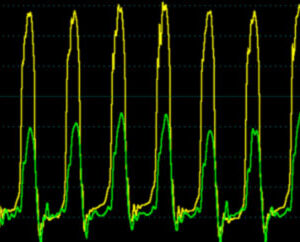
Waveform Interpretation: Simultaneous LV and RV Waveforms & Simultaneous LV and FA
Description: In this lesson, we will review the principles of analysis of high-quality hemodynamic pressure recordings. We will focus on respiratory effects and simultaneous pressure recordings from left-sided and right-sided chambers. Note: This course is eligible for ACPE credit.
Authors: Michael Ragosta III, MD and Lawrence W Gimple, MD
Credit/contact hours: .25
Estimated time to complete: 20 minutes
Publication Date: March 8, 2018
Expiration Date: March 7, 2027
$25.00 -
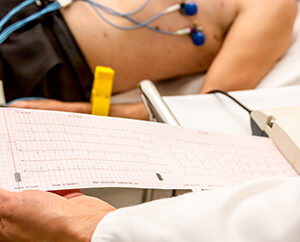
Wide Complex Tachycardia
Description: Tachyarrhythmias can present a significant clinical challenge. Patients presenting with fast heart rate may be unstable with chest pain, hypotension, or with myocardial ischemia, or they may be completely asymptomatic. The initial approach typically involves distinguishing between tachycardias with a wide QRS complex ("wide complex tachycardias") versus those with a narrow QRS complex ("narrow complex tachycardias"). Narrow complex tachycardias are always supra-ventricular in origin. Wide complex tachycardias are more complex as they may arise from supra-ventricular sources and conduct aberrantly (supra-ventricular tachycardia with aberrancy) or they may arise from ventricular sources (ventricular tachycardia). In this case, we will examine a patient presenting with tachycardia and work our way through a differential diagnosis. Note: This course is eligible for ACPE credit.
Authors: Nishaki Mehta, MD, Ceshae Harding, MD, Araba Ofosu-Somuah, MD
Credit/contact hours: .5
Estimated time to complete: 30 minutes
Publication Date: Apr 21, 2020
Expiration Date: Apr 21, 2026
$25.00
